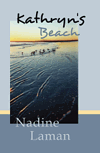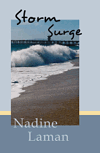Rather than reading the trade papers for what's hot in the industry (yes, I do read them anyway) the place with the finger-on-the-pulse is literary agents' blogs.
Some things never change, for example, the nasty comments about really bad-bad query letters and the insane things people write in them. Note: A query letter is a business proposal, not a pen pal letter.
While Judith and I tend to be approachable and not terribly snarky with replies to query letters, that doesn't mean that I don't eye-roll on occasion. Sorry about that. I know "this ms" is important to you.
I love the sencerity when someone writes that their mum, 92 year old former English teacher, lover, or stranger they met at the dog park loves their ms and I will, too. Keep in mind that neither Judith or I are any of those -- especially not 92 years old!
A query letter is a business proposal that in the end is designed to get us to spend OUR money to make YOUR ms into a marketable book.
The first thing you are after is to get us to finish reading your query letter and the synopsis. Next is to get us interested enough to read the first three chapters that are requested as part of our submission guidelines.
The first thing you are after is to get us to finish reading your query letter and the synopsis. Next is to get us interested enough to read the first three chapters that are requested as part of our submission guidelines.
You should throw a huge party if we ask for the full manuscript. We probably read the full manuscript on 5% or less of the submissions. I don't know if that is a normal per cent for the industry or not, but there are only so many hours in the day and very few of us to read mss.
There are no guarantees that an offer of a contract will follow a request for a full ms.
There are no guarantees that an offer of a contract will follow a request for a full ms.
Most people get the middle of their ms going full steam. The beginning is the part I have trouble with, especially if there is a prologue. Yes, we have published a couple of books with prologues. That doesn't mean that I like prologues. I feel strongly that if that information is important to the story, then put it in the story. (Judith is a lot more patient with prologues.)
Even so, I think the end is the most important piece of the whole work. That's the bit that props open the reader's mind and won't let the door close on the characters. They linger. They come into one's thoughts, they provoke thought, they are real people.
If anything, the lack of a satisfying ending has been the cause of several missed contracts.
The point of all of this is that when asking someone to fund your project (book) then you have to let go of the title, this bit and that bit, and be willing to do rewrites.
If you're unwilling to change any part of the submission, then we probably aren't the right publisher for you. We will "kick the tires" and if they need air in them, we will want you to do that; put air in them. (Email me if you don't get what kick the tires means. Tire=tyre.)
If you're unwilling to change any part of the submission, then we probably aren't the right publisher for you. We will "kick the tires" and if they need air in them, we will want you to do that; put air in them. (Email me if you don't get what kick the tires means. Tire=tyre.)
As the unpacking for the move last year moves forward at such a slow pace that it is unnoticeable, I came across an article that I printed from the internet in 2005.
http://hollylisle.com/revision-requests
http://hollylisle.com/revision-requests
To get you started reading literary agent blogs, here is the link to one of many good ones.
http://jetreidliterary.blogspot.com/
http://jetreidliterary.blogspot.com/
Knowledge is power. Learn everything you can about the industry, about writing, about submissions.

 When Paul Fenton stops for breakfast in a small town, he gets more than he bargained for in the process.
When Paul Fenton stops for breakfast in a small town, he gets more than he bargained for in the process.
 When two-hundred-year-old human remains are discovered on one of Neptune's moons, Earth's history falls into question.
When two-hundred-year-old human remains are discovered on one of Neptune's moons, Earth's history falls into question.
 Emily's husband persuades her to try thalidomide to ease her symptoms as she is unaware of the devastating effects.
Emily's husband persuades her to try thalidomide to ease her symptoms as she is unaware of the devastating effects.
 Who is the women's shelter bomber? Melissa Ryan suspects that her husband knows.
Who is the women's shelter bomber? Melissa Ryan suspects that her husband knows.
 Further developments with the Wilder family.
Further developments with the Wilder family.
 A hidden past shakes the O'Donovan family to its core
A hidden past shakes the O'Donovan family to its core
 A swirl of emotion and choice, set in Cape Town, South Africa
A swirl of emotion and choice, set in Cape Town, South Africa
 Love is a constant, but it comes at a price.
Love is a constant, but it comes at a price.
 When the road ahead is unclear, sometimes you have to rely on trust.
When the road ahead is unclear, sometimes you have to rely on trust.
 The struggle between good and evil is ages old. It gets all the more complicated when the good guys aren't all good and the bad guys have redeeming qualities.
The struggle between good and evil is ages old. It gets all the more complicated when the good guys aren't all good and the bad guys have redeeming qualities.
 Story of a land mothering two races of people – the light-skinned and the dark-skinned.
Story of a land mothering two races of people – the light-skinned and the dark-skinned.
 A gifted Ukrainian ballerina comes into possession of a mysteriously coded address book.
A gifted Ukrainian ballerina comes into possession of a mysteriously coded address book.
 Six passengers' lives change for better or worse after they arrive in Honiton.
Six passengers' lives change for better or worse after they arrive in Honiton.
 Resilience and love in a harsh and unforgiving age
Resilience and love in a harsh and unforgiving age
 Kathryn's Beach
Kathryn's Beach High Tide
High Tide Storm Surge
Storm Surge
No comments:
Post a Comment